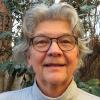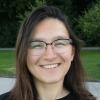Disability Studies and Mad Studies
This working group in disability studies and mad studies provides a forum for scholars from around the world and in a number of different disciplines to come together to share their work. It is also meant to provide people who are new to the fields with an entry point into key work in the fields. The group is open to specialists and non-specialists, and interested students. The group will discuss works in progress and published works, and it will provide a forum for specialists to lead seminars and give lectures in their area of expertise. The history of science, technology, and medicine is critically important in disability studies and mad studies, but students and scholars from those areas of study rarely have the opportunity to engage with one another’s work in ways that are both meaningful and lasting. This working group will begin to remedy that situation by providing a virtual forum for students and scholars to come together to share their work and have conversations with one another.
Closed Captioning for the Working Group on Disability Studies and Mad Studies is made possible by the generous co-sponsorship of the Center for Disability Studies at the University at Buffalo.
Please set your timezone at https://www.chstm.org/user
Respectful Behavior Policy
Participants at Consortium activities will treat each other with respect and consideration to create a collegial, inclusive, and professional environment that is free from any form of discrimination, harassment, or retaliation.
Participants will avoid any inappropriate actions or statements based on individual characteristics such as age, race, religion, ethnicity, sexual orientation, gender identity, gender expression, marital status, nationality, political affiliation, ability status, educational background, or any other characteristic protected by law. Disruptive or harassing behavior of any kind will not be tolerated. Harassment includes but is not limited to inappropriate or intimidating behavior and language, unwelcome jokes or comments, unwanted touching or attention, offensive images, photography without permission, and stalking.
Participants may send reports or concerns about violations of this policy to conduct@chstm.org.
Upcoming Meetings
-
Tuesday, January 14, 2025 12:00 pm to 1:30 pm EST
TBA
-
Tuesday, February 11, 2025 12:00 pm to 1:30 pm EST
TBA
-
Tuesday, March 11, 2025 12:00 pm to 1:30 pm EDT
TBA
-
Tuesday, April 8, 2025 12:00 pm to 1:30 pm EDT
TBA
-
Tuesday, May 13, 2025 12:00 pm to 1:30 pm EDT
TBA
Past Meetings
-
December 10, 2024
TBA
-
November 12, 2024
TBA
-
October 8, 2024
TBA
-
September 10, 2024
TBA
-
May 14, 2024
“The Mad Butler of Gray’s Inn: Service, Disability, and the Limits of Early Modern Institutional Care”
In March 1593, John Somerscales, a junior butler of Gray’s Inn, fell ill. In response, the Inn’s administrators, comprising senior lawyers of the Inn (including a young Francis Bacon), ordered the disbursement of his weekly wages and permitted him to convalescence at the Inn. When it became apparent that Somerscales had lost his “perfect sence & memorye,” the lawyers committed him to London’s Bethlem Hospital. They also paid for Somerscales’s “keeping” using the limited funds of the legal society. This talk uses Somerscales’s case to ask questions about early modern master-servant relations, the nature of care-work outside of the family structure, the precarity of wage-earners (particularly those who experienced debilitating mental conditions), and the cultural significance of able-minded, hyper-rational lawyers staging, spectating, scripting, and performing dramatic scenes of madness.
Bio: Penelope Geng is an Associate Professor of English at Macalester College, where she teaches courses on early modern literature, Shakespeare, law and literature, and disability. She is the author of Communal Justice in Shakespeare’s England: Drama, Law, and Emotion (University of Toronto Press, 2021). Her articles and essays have appeared in Studies in Philology, The Sixteenth Century Journal, The Ben Jonson Journal, Law, Culture and the Humanities, Situating Shakespeare Pedagogy in US Higher Education, and The Shakespearean International Yearbook: Disability Performance and Global Shakespeare. She is working on her second monograph, provisionally titled “Disabled by Law,” which uncovers the deep influence of feudalism on early modern notions of disability, racial purity, and able-bodied citizenship. With Jennifer E. Row (French, UMN), she is the co-convener of Uncommon Bodies, a workshop devoted to the study of early modern disability, embodiment, race, and performance.
-
April 9, 2024
Cripping Ecorelationality and Ecorelational Pleasure
In my recent research, I have been interested in productive intersections between environmental studies and disability studies, in other words, the research area that may be called green or environmental disability studies. I have been studying how concepts developed in this field find a reflection in cultural production and, more specifically, in what I call cripped ecorelational aesthetics. I define it as a form of aesthetics which creates a space for meaningful encounters between the human and the non-human, accentuating the essential vulnerability of all human and nonhuman beings and promoting an ethics of (inter)dependence and care. A key question that I would like to address in my presentation concerns the role of pleasure in this aesthetics. To this aim, I will introduce the concept of ecosexual pleasure and examine how this campy subversive intimate queer concept of pleasure manifests itself in works of disabled female artists – Riva Lehrer, Claire Cunnngham (in her audioworks created in collaboration with academic Julia Watts Belser) and Nomi Lamm (in a song performed as part of We Love Like Barnacles by Sins Invalid). As presented in these paintings, recordings, and a performance, erotic ecorelational pleasure promotes more care-ful and ethical ways of living on Earth as well as challenging ableist presumptions about the bodyminds that can give and receive or experience such pleasure.
Bio: Katarzyna Ojrzyńska is assistant professor at the Department of English Studies in Drama, Theatre and Film (Institute of English Studies, University of Łódź, Poland). Her research interests mostly oscillate around cultural disability studies. She collaborates with the Theatre 21 Foundation and Warsaw’s Downtown Centre of Inclusive Art. She has translated Rosemarie Garland-Thomson’s book Staring: How We Look into Polish (Gapienie się, czyli o tym, jak patrzymy i jak pokazujemy siebie innym, Fundacja Teatr 21, 2020) and co-edited (together with Maciej Wieczorek) a collection of essays entitled Disability and Dissensus: Strategies of Disability Representation and Inclusion in Contemporary Culture (Brill, 2020).
-
April 9, 2024
TBA
-
February 13, 2024
Clocks and Temporalities of Parental Care for Persons with Disabilities
The parent provides care 24/7…
I’m very strict and I followed a very strict routine – even now we’re constantly on various strict routines.
Good care by contemporary families with children with disabilities prolongs their lives, which raises a series of other questions: What happens after they turn 18, how do we care for these young people and their families after they turn 25, 35 or even 50, what happens after we are no longer around?
These words of Galya Koycheva, parent of a person with multiple disabilities, activist and psychosocial support specialist can be often heard in biographical interviews and public discussion on life with disability in Bulgaria (and most probably in talks on the topic of any other parents all over the world). They draw attention to specific timing and temporal horizons, which significantly differ from public calendars and timetables, from model biographies and expectations for personal and professional growth. It is no coincidence that the period after the first encounter with the diagnosis of the disability is experienced as “going out of rhythm” and “going out of the society” – of the society of normal, active and productive individuals. However, this experience does not presuppose entering ahistorical mode. On the opposite, the social changes and generational crisis severely affect the life trajectories and catalyze various deficits and lacks – of financial stability, job opportunities, of adequate health care and public support, which make mothers like Galya Koycheva fear for the future of their children.
What does it mean to live with disability in terms of experience of biographical and social time? Where do the life projects of parents, caring for children with disabilities in Bulgaria intersect or diverge with common work routines, agendas of national institutions or NGOs, and with cultural timing norms in general? What are the chronoholitics and generational contexts that underpin or confront them?
More generally, whether the specific dynamic of the parental care for life with disability (in Bulgaria) can be considered as trigger for the construction of and the adherence to alternative social timings and cultural life protocols, which evinces a strong critical potential for evaluating the social and historical frames of „normality“ and “personal development”.
Bio:
Assoc. Prof. Dr. Galina Goncharova is a lecturer at the Department of History and Theory of Culture at Sofia University “St. Kliment Ohridski”. Her research interests are in the field of Bulgarian cultural history, oral history, anthropology of religion and culture of care. She has published on death and dying in (post)socialism, generational discourses, religious identities and practices, care for life with disability, etc. Together with Ina Dimitrova, she is co-editor of the thematic issue “Disability, Care, Postsocialism”, Critique & Humanism Journal 55 (3), 2022 (In English and in Bulgarian).
There is no paper to read ahead of the presentation.
-
December 12, 2023
Emily Herrington, Touch Hunger: The story of hand transplants (Introduction)
Abstract:
No one knows more about the value of human touch and human hands than a person who has lost a hand, or both their hands, and received a hand transplant. In the Introduction to Touch Hunger: The story of hand transplants, the personal problem of hand loss and the hypothetical promise of hand transplantation are introduced through the story of Rich Edwards, a chiropractor who lost the use of both his hands in a fire and sought experimental double hand transplantation as a last grasp at restoring his vocation and relational quality of life. Based on oral history interviews with hand transplant patients and their caregivers and romantic partners, TOUCH HUNGER explores the possibilities and limitations of life with transplant hands compared to life with one or no hands following catastrophic injury or amputation. What is it like to undergo such dramatic experimental surgery, in favor of existing reconstruction or prosthetic options? Are hand transplants successful from patients' point of view, especially patients like Rich Edwards, who deeply valued his sense of touch? How do partners and family members of hand transplant patients feel about their loved ones' donated hands, or their role in maintaining a successful outcome for transplant?
In alternating chapters with oral history accounts, TOUCH HUNGER tells the story of hand transplants as a global medical experiment. Being the first organ transplants performed to improve a patient’s quality of life, rather than to save it, experimental hand transplants in 1998 and 1999 created a new medical field bridging plastic surgery and transplant immunology: reconstructive transplantation. The backstory of institutional-political dynamics giving rise to new hand transplant programs and therapies helps widen the frame of the book and in many cases, gives context to hand transplant patients’ grounded observations and sense impressions. The chapter closes by presenting the structure of the book, its methods and its rationale.
Bio:
Emily Herrington is a writer, artist and teacher living in Pittsburgh with her partner Paul and a cat named Iggy. She has a BA in English from Bellarmine University in Louisville, Kentucky and a MS in Science Writing from MIT, and she worked several years as a science writer and communications officer before moving to Pittsburgh where she earned a PhD in Communication and a MA in Bioethics in 2019. Emily’s oral history research with hand transplant patients inspires her work in health policy advocacy, most notably with the Reconstructive Transplant Peer Network, a group of hand and face transplant patients and their partners who meet monthly and work with surgeons to help shape policy and processes for reconstructive transplant patients.
-
September 12, 2023
THIS EVENT HAS BEEN CANCELED. WE WILL ATTEMPT TO RESCHEDULE.
Tuesday, September 12
12 PM - 1:30 PM Eastern
Christopher Thomas Goodwin, "What Difference Does a (Disabled) Husband Make? Disabled Veterans, Women, and the Limits of Population Policy in the Third Reich.
Abstract: The close of 1942 brought a grisly milestone for the Nazi regime: over one million soldiers had died since the war began. Anxieties flared among top leaders who began to weigh war’s supposed rejuvenating effects on the nation against the tremendous loss of valuable genetic material. One group of men survived, however. Over 100,000 strong by December 1942, disabled veterans had proven themselves as the masculine ideal. However, Nazi leaders believed, their missing limbs and maimed faces would drive off potential spouses and their hereditary lines would be lost forever. Marriage mediation arose as the answer to this problem, and as a potential solution to the vexing problem of managing the German population along racial lines. The Nazi regime used state-run marriage mediation of disabled veterans to align women’s marital choices with the Nazi goal of raising the German birthrate. Marriage centers were intended as a gateway to wider acceptance of population policy and to the eventual abandonment of the marriage “free marketplace” in favor of demographic management to create collective outcomes of hereditary fitness. This involved creating new marital and reproductive duties among Germans and channeling this social responsibility to convince Germans to willingly participate in marriage mediation for the greater good. Yet, individual desire and self-reliance in the broader marketplace almost always trumped Nazi policy.
Bio: Christopher Thomas Goodwin is a doctoral candidate in the history department at the University of Illinois, Urbana-Champaign. He is currently completing his dissertation on the cultural, ideological, and legal construction of disabled veterans in the Third Reich during the Second World War entitled “Broken Supermen: Disabled Veterans and Soldiers in Nazi Germany, 1939-1951.
Group Conveners
-

Jenifer Barclay
Jenifer Barclay is an Associate Professor in the Department of History at the University at Buffalo, Associate Director of the university’s Center for Disability Studies, and Associate Editor for the Review of Disability Studies: An International Journal. She specializes in 19th century U.S. history, the history of slavery, the history of disability, race and global health.
-

Katherine Ott
Katherine Ott, Ph.D., is a curator in the Division of Medicine and Science at the Smithsonian's National Museum of American History. She is the author or co-editor of three books and has curated exhibitions and published on such topics as the history of disability, medicine, polio, HIV and AIDS, skin, LGBTQ+, and scrapbooks. She received the 2016 Society for Disability Studies Senior Scholar Award, is an OAH Distinguished Lecturer and teaches a graduate course in American Studies at the George Washington University. Ott tweets @amhistcurator about her work.
-

Natalia Pamula
Pamula is Assistant Professor of Cultural Studies and Disability Studies at the University of Warsaw, Poland. She specializes in Polish literature, American literature, and gender.
-

Mike Rembis
Mike Rembis is an Associate Professor in the Department of History at the University at Buffalo and the Director of the university’s Center for Disability Studies. He specializes in 19th and 20th century U.S. history, the history of psychiatry, the history of institutions, the history of eugenics, the history of disability, and mad people's history.